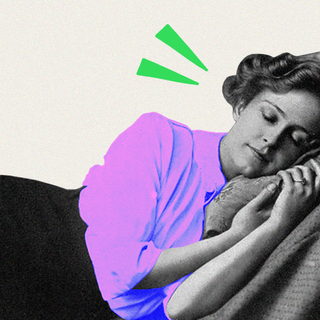A new piece of legislation proposed in the Canadian Parliament last week will, if passed, outlaw astronauts from committing any acts that are legally unlawful back here on Earth — more specifically, back in Canada. The “Civil Lunar Gateway Agreement Implementation Act” will reportedly apply to the Lunar Gateway project and on the Moon itself.
But this isn’t the first time the laws of Earth have applied to outer space. The International Space Station has its own legal framework in place for astronauts onboard. It stipulates that every astronaut on the ISS will be subject to the criminal laws of their home countries
“… each partner shall retain jurisdiction and control over the elements it registers and over personnel in or on the Space Station who are its nationals,” the European Space Agency (ESA) states in a guide to the ISS legal framework. The Canadian legislation thus comes as a result of its joining the Lunar Gateway Project alongside other members: the ESA, NASA, and the Japan Aerospace Exploration Agency. The project is a mission to launch a small space station to orbit the Moon and monitor lunar missions from there.
The first space crime is widely attributed to a woman named Ann McClain, who was accused of identity theft by divorced husband, allegedly using NASA servers from space. This was later proven to be untrue, but not without setting a precedent for thinking about human conduct outside the realms of the Earth. “As humanity approaches a time when humans may realistically be living and working in space, an international centralized space governance system will be needed to bring all nations, individuals, and institutional entities involved in space utilization under a common legal system and jurisdiction,” said Ram Jakhu, a McGill University professor commenting on the issue.
Related on The Swaddle:
A Food App Has Made Its First Delivery in Space
The issue gives jurisprudence new horizons to cover. It is not incorrect to say that today, space is a workplace — and like any other, can be susceptible to workplace crimes like sexual harassment. Judith Lapierre is one such astronaut who, in 1999 was sexually harassed by a colleague in a space station living simulation. Nonetheless, the event points to the plausibility of similar incidents occurring in an actual space station. Lapierre was eventually blamed for “refusing to be kissed,” and in doing so, causing the simulation to fail.
“Here onEarth we’ve seen violence against women within the NFL and the Armed Services receiving much-needed attention… In any system where violence is a risk or recurring issue, both setting and enforcing societal expectations of gender differences, education, and non-violence [are important],” Marjorie Jenkins, who advised NASA on sex and gender issues, told Vice.
According to some reports, another incident drew attention to the issue of violence in space. “One cosmonaut was so pissed off at another that during an EVA [extravehicular activity], one of the guys got untethered and was in danger of floating off beyond the point where he could be retrieved, and his crewmate just kind of let him drift off for a while before snatching his tether line at the last second,” space lawyer Thomas Gangale told Slate.
Experts note that with space tourism, a very real possibility in the near future (with billionaires making their way there ahead of everyone else), the issue of legislating people in space becomes that much more important — and complex. “If Astronaut A from Country A stole a watch from Astronaut B from Country B, and it happened in a part of the ISS that belonged to Country C, then it’s a lot less clear,” said Michelle Hanlon, a professor of air and space law from the University of Mississippi.
Current guidelines put it to individual countries to negotiate a solution in such cases, but space tourism increasing extraterrestrial traffic could complicate that. Nevertheless, the Canadian government’s proposed law is one step toward recognizing the infallibility of humans in the heavens, and creating ways to hold them to account.




